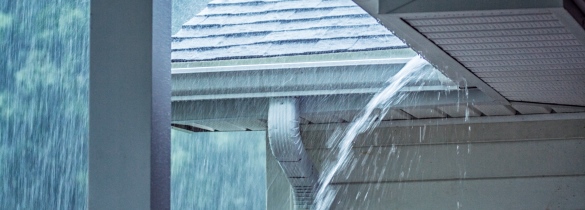Many residents in the Carolinas are going through the long process of cleaning up after Hurricane Florence. Unfortunately, in addition to the heartbreaking damage and loss of property caused by such natural disasters, many residents will also be forced to cope with the frustration caused by having inadequate insurance on their home. Millions of people are at risk of their homes flooding because of a hurricane, but without flood insurance there may not be any coverage for damage caused by the flood.
In fact, consumer advocates say more than half of U.S. homeowners don’t have enough insurance coverage to replace or rebuild after a natural catastrophe like Florence. When a home is ‘underinsured,’ there’s a gap between the insurance company’s payout and the actual cost of repairing damage or replacing the home and its contents.
“There are many reasons for being underinsured,” said Jan Tripp, president of Members Insurance Advisors, LLC. “People don’t always think to raise their policy limits after they renovate, or the cost of building materials and contractors may skyrocket after a natural disaster. Some homeowners simply may not realize their deductible is much higher for damage caused by a hurricane or other natural disaster. Not only are these events very costly, they create additional hardship to an already stressful situation.”
For most people, a house is their most valuable possession. Here are 10 tips for making sure it’s adequately insured.
- Calculate, per-square-foot, how much your home is insured for. Compare that coverage to the approximate cost of rebuilding in your area. (Check with your insurance agent or local contractors to get an idea of the per-square-foot cost of rebuilding your home.)
- Establish a relationship with a reputable agent and tell them you want to be properly insured for the highest replacement cost coverage available for your home. Most insurers offer 25-100% above the limits that appear on your “declarations page.” Shop around for this important protection.
- Answer all questions accurately, so the insurer knows the size of your home and other structures. Provide lists of unusual features, major improvements, and high-value personal property.
- Follow your insurer’s recommendations for increasing or maintaining coverage limits. Take notes documenting your insurer’s confirmation of adequate coverage.
- Have important possessions appraised, then roughly calculate the cost of replacing your home's contents and adjust your policy accordingly. Some items, such as jewelry, computers, fine art and other collectibles, may be better insured if they're specifically listed (or “scheduled”) in your policy contract.
- Make sure your policy has adequate coverage for building code upgrades which may be required after a natural disaster.
- Check with your insurance agent about available endorsements to cover earthquakes, sewer backup, home business increasing loss assessments coverage for homeowners who are part of a homeowner’s association, and personal injury endorsement or a separate Umbrella policy.
- Consider Additional Living Expense (ALE) insurance to cover costs for at least two years after a total loss. ALE coverage can provide for expenses such as rent, loss of income, and even the increase in your monthly food bill necessitated by eating at restaurants.
- Photograph or videotape your home and contents and store copies of the tapes, photos or negatives off-premises.
- Raise your deductible to keep your premium affordable when you increase your coverage limits.
And here’s one “don’t:” do not rely on the purchase, appraised or estimated sale price of your home to set your insurance coverage limits, since those amounts do not reflect the cost of rebuilding.
People are usually shocked by the high cost of rebuilding a home, and even replacing smaller possessions. Having adequate insurance may not protect you from the devastation of a natural disaster, but knowing your insurance will provide the resources to rebuild and recover can help you weather the storm in peace.



